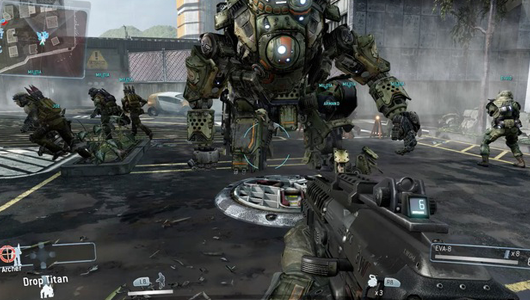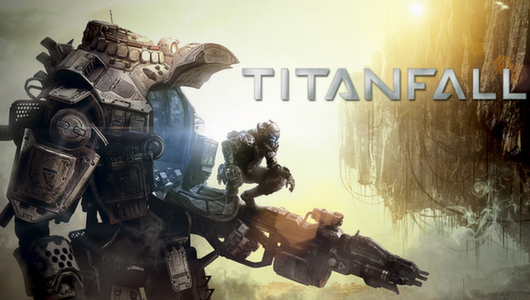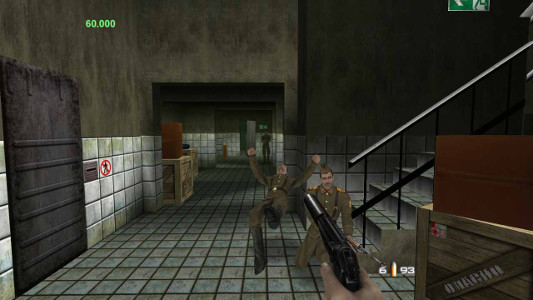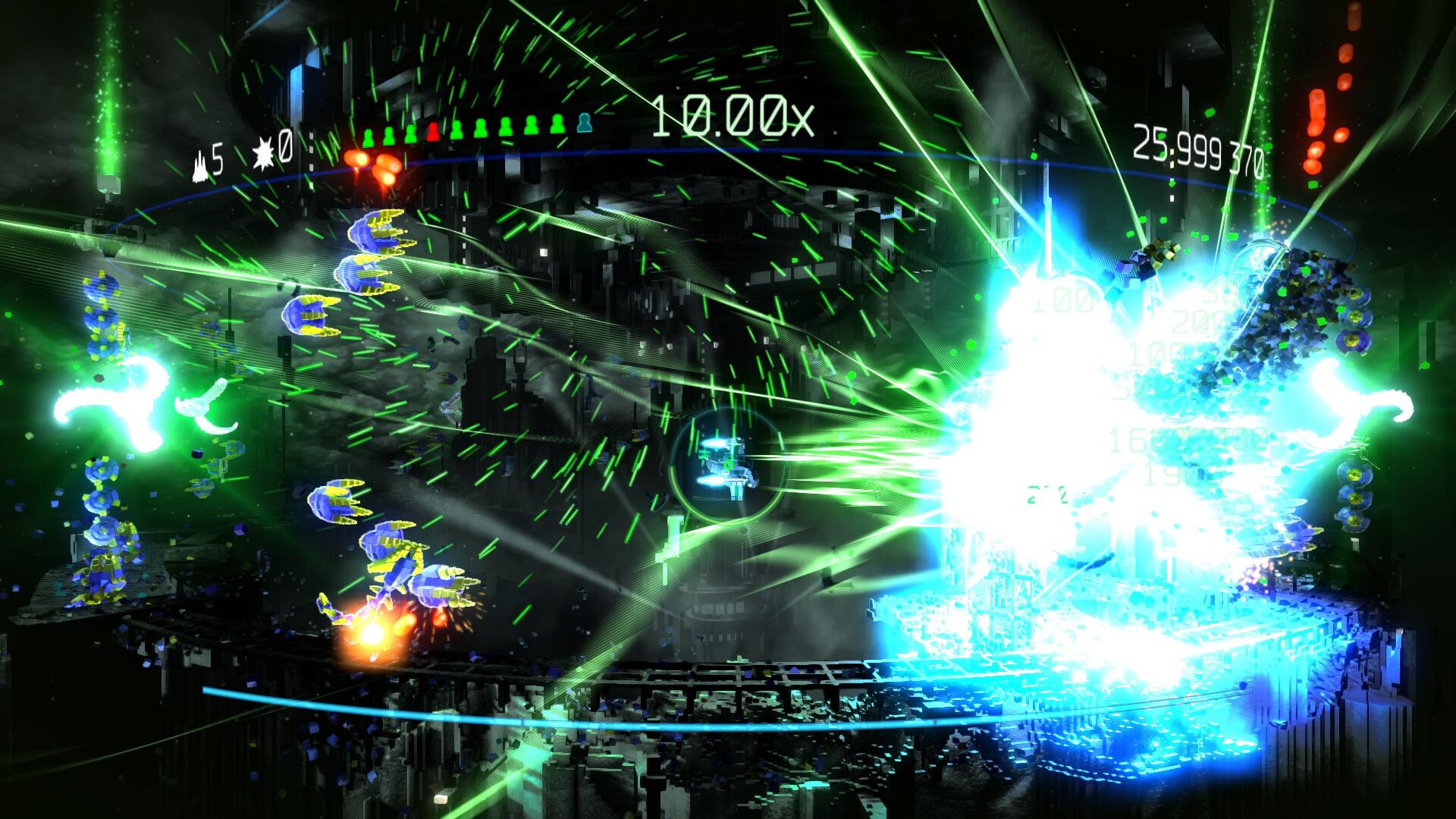While playing a game of Titanfall with some college buddies of mine the other night, I was struck with a sudden realization about the state of gaming’s most popular genre. In between Matthew McConaughey jokes, we began to discuss our most anticipated games of the year. While I was alone in my opinion that Ubisoft’s Child of Light is the most interesting upcoming release, my friends almost instantly suggested Destiny. No longer content with playing Call of Duty year after year, they were clearly in search of new shooter experiences.
Evolve also managed to make us sound like kids on December 24th, as the spiritual successor to Left 4 Dead appears to be unlike anything we have ever experienced. I began to ponder why these games seem to be universally anticipated (as I have heard them mentioned in countless other similar conversations) before realizing that the answer was quite simple. Developers appear to be taking first person shooters in new directions, something fans clearly appreciate. We are entering the First Person Shooter renaissance.
Being that I am younger than a great deal of my gaming journalist counterparts, I don’t have nostalgia for Quake, Doom, and Unreal Tournament. I’ve felt completely out of place in conversations about these classic games, as I was born in 1991, meaning that I was two when Doom was first released. While I admit that my knowledge of the genre’s origins is rather limited, this gives me a unique perspective on the first person shooter. Some of my first gaming memories involve four-player GoldenEye 007 matches with my elementary school peers. The first M-rated game I ever played was Halo for the original Xbox in 2001. The first game trailer I remember watching was for Halo 2 (the game that provided my first online gaming experience).
I may not have been around for the beginning of the first person shooter genre, but I certainly grew up during its biggest period of growth. I sunk over 40 days of actual time into Call of Duty: Modern Warfare 2 during my freshman and sophomore years of college (being the first person on my floor to get a Tactical Nuke was one of my favorite college moments). This dedication to the genre wasn’t all that odd for gamers my age, as these games were always a component of our social lives. First person shooters have always been a part of my gaming life, never growing stale until recently. For every renaissance, the dark ages must exist, and after Modern Warfare 2, that period began for me.
With the new generation of consoles, it seems that an anti-Call of Duty sentiment has begun to grow. Make no mistake, Call of Duty will continue to see massive sales numbers for years to come (although maybe not at the level of Modern Warfare 2 or Black Ops). However, one only has to skim online forums for a couple of minutes to see that the community is growing tired of essentially the same product being released year after year. My theory on why this is the case has to do with the release of the PlayStation 4 and the Xbox One at the end of 2013. If I spend $400 or $500 on a brand new piece of “next-gen” hardware, why would I want to continue to have the same experiences I had on my previous system? What is the point of buying a new console if nothing has really changed?
Call of Duty: Ghosts had the potential to reinvent the franchise at the start of a new generation, but to many it was simply the same game we’ve been playing since 2007, only with a higher resolution. It has become apparent that gamers no longer accept stagnation in our titles. We want something new and innovative. We want what was previously impossible to become the norm.
The worst-kept secret in gaming is that innovation has been constantly taking place through indie titles. There is a reason why this period has become known as the “Indie Revolution”, as these smaller titles tend to be where the most risk is taken. Nintendo will never release a Mario title where you only have four lives per play-through, but Derek Yu can certainly do this with Spelunky. EA wouldn’t risk investor dollars on a survival-horror game where the only item available is a video camera, but there was nothing stopping Red Barrels from creating Outlast (I had to use this example for sheer corniness, I’m sorry). If you want to play unique, charming, innovative games, then indies tend to be your best bet. In fact, independent games have driven me away from games like Call of Duty.
Why should I spend $60 on a game I’ve played multiple times when I can get four or five unique experiences that expand my gaming horizons (while supporting developers that dare to be different)? AAA titles tend to be risk-averse, as shareholders will not accept commercial failures. What’s interesting about the need to create commercially successful games is that being too risk-averse will actually limit the success of a given game. By definition, we play games to have fun, so AAA developers need to strike a balance between being innovative and being customary. In addition to a new console generation, indie games seem to be contributing to the community’s desire for AAA games to take bigger risks. It’s 2014, the DeLorean will arrive a second time this Fall, we need new gaming experiences.
This is not an article meant to lambaste the Call of Duty franchise or insist that indie games are better than AAA titles, I want to make that extremely clear. Rather, this piece is meant to praise a few major developers for their work in starting the advancement of the first person shooter genre. The early 2000’s saw a great rise in first person shooter popularity, with the Halo franchise bringing the genre to new heights on consoles. Experiences like Halo and Halo 2 are what made many people my age fall in love with gaming, and we want to feel this love again. What’s exciting is that good news has finally begun to appear. Those new shooter experiences we’ve been clamoring for? They’re either here or on the horizon. Respawn Entertainment responded to our pleas for an exciting new first person shooter, and they absolutely hit it out of the park.
Respawn Entertainment was founded by Vincent Zampella and Jason West (formerly of Infinity Ward). Being that they helped create the biggest first person shooter franchise on the market, Zampella and West certainly knew how to create a successful multiplayer game. Respawn’s first game, Titanfall, is the first true “system-seller” of the new console generation. Released on March 11th for the Xbox One and PC (with the Xbox 360 version currently set for release on April 8th in North America and April 11th in Europe), Titanfall may not have reinvented the wheel, but it did find a way to make it spin ten times faster.
Anyone who has played a first person shooter will immediately feel at home here, as the shooting mechanics are familiar and comfortable. Increased player mobility, through high speeds and parkour, and the ability to play in a giant mech are what make Titanfall special. The fact that Respawn was able to create balance between the human Pilots and giant Titans is a phenomenal accomplishment. The constantly evolving strategy has brought me back nearly every night since the game’s release; so much is going on at once that no two games are ever the same. I haven’t been captivated by an online shooter for almost four years until Titanfall, devoting most of my time to single player experiences. It is the sole the reason I have an Xbox One, and not once have I regretted my console purchase. This is Call of Duty on steroids; it’s Halo on cocaine. Titanfall is the first shock to the heart of the first person shooter, and the genre will never be the same.
What makes this a renaissance is that the innovation doesn’t end here. There are titles on the horizon that will provide the adrenaline spike first person shooters desperately need. The first person shooter is now clay in the hands of developers, becoming a vehicle for creative gameplay innovation. To me, no first person shooter has demonstrated this more than Evolve, the upcoming title from Left 4 Dead developer Turtle Rock Studios. Evolve is essentially an online boss-battle simulator, with one player taking the role of a giant, evolving monster, and four other players working together to defeat it. The monster is able to complete tasks, such as killing wildlife, to gain more powers and grow stronger, making defeating it more difficult for the four hunters. Evolve is only being made for the PlayStation 4 and Xbox One, meaning that the worlds these battle take place in will be unlike anything we have seen before. Being that hardware no longer seems to limit what developers can accomplish, Turtle Rock has gone all in in terms of creativity. Boss-battles have always been a staple of gaming, but allowing a player to become the boss in an online setting is breaking new ground. I can only imagine how satisfying it will be to outsmart an entire team of enemies by oneself, or, conversely, how challenging it will be to defeat a boss with legitimate human intelligence. Evolve is set for release during Q3 of 2014.
Bungie was able to propel the first person shooter to popularity unseen when Halo was released for the original Xbox in 2001. Halo 2 helped prove that online-capable consoles were going to be a major staple of gaming in the 21st century. Their newest project, Destiny, is perhaps the most ambitious title in the history of gaming. I don’t consider this to be hyperbole at all, as Bungie hopes to completely change what we consider a multiplayer shooter to be. What Destiny aims to do is create a “shared-world” shooter experience. Essentially, Destiny aims to create a universe that evolves on its own, with events happening without developer input. Customization will be at an all-time high, with player weapons and gear telling the story of where they have been. Matchmaking will happen in the background (potentially somewhat like Journey on the PlayStation 3), making for a more natural, uninterrupted gameplay experience.
Areas of Destiny’s universe will never feel empty, as Bungie is creating a way for this background matchmaking to bunch players together, regardless of their location in Destiny’s environment. This concept of seamless matchmaking opens up a world of new possibilities. Could a player be wandering around this universe and stumble upon a competitive multiplayer match? Will players be able to gain allies in a story mission without ever having to ask for them? Will lobbies be a thing of the past? The idea of an online game like Destiny, with MMO aspects meshed together with our favorite shooter conventions, is almost mind-blowing. Destiny is one of my most anticipated games of 2014 because of its ambition; it aims to use RPG and MMO elements to take the first person genre to new heights. If everything works the way Bungie hopes it will, how will we ever be able to go back to the shooters of the past?
The First Person Shooter renaissance is more than just an update to a genre gamers have come to love. This drive to improve the most successful genre in gaming is the true reason to buy a next-generation console. Every console generation brings prettier graphics, but this seems to be the first generation of consoles in years that could truly blow our minds. We’ve been hoping for change, begging for creativity, and seeking new experiences. We no longer have to wait, the time has come.











Matt Whittaker
I need to see multiple examples of VR “killer apps” in action before I buy in. I’m nervous that it’s going to be a $350 head-mounted right joystick.
Excellent points though Tim, I’m glad this article was thought provoking.